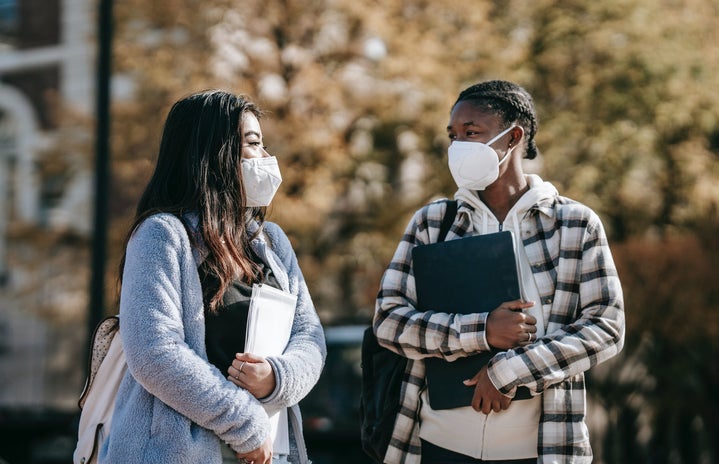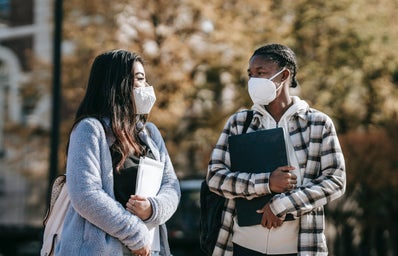Almost two years after it was initially passed, the law to self-isolate has now been lifted.
As part of his ‘living with Covid strategy’, Boris Johnson set out a timetable for winding down testing and scrapping mandatory isolation. From Thursday 24th February, you do not legally need to isolate if you test positive from a positive PCR or a lateral flow test, though you are advised to remain at home and avoid contact with others for at least five days. “We will encourage people with Covid-19 symptoms to exercise personal responsibility,” the PM said, “just as we encourage people who may have flu to be considerate to others.”
While there have been responses of support and delight for this decision from Tory MPs who were opposed to Covid restrictions, responses of scepticism have also flooded the news, the media, our own timelines – many being routed in public health concerns. Director of Public Health for Liverpool City Council, Matthew Ashton, stated that “Data and intelligence systems need to remain active, with good quality surveillance and monitoring which will allow us to quickly identify increases in infection levels.”
However, despite the need for continual testing and monitoring, Boris Johnson announced an end to free Covid tests for the public by April 1st. Already prices are rising; a single LFT costs £5.99 when shopping online at Boots, or you can buy four for £17.
With such prices, the concern must be raised that, as self-isolation ends, testing may no longer be a viable option for more vulnerable and lower-class communities. Naturally, this is a concern for many as it puts those with the poorest health at risk – people who we have tried so hard to protect during the pandemic.
However, Johnson’s strategy is only another example of a wider trend that has taken place during Covid: time after time, the vulnerable and the working-class have continually been sacrificed to keep the economy going.
Eat Out to Help Out – a government scheme with the goal of putting the economy back on its feet – “was closely linked to an increase in cases over the summer”, according to the Guardian. While also putting members of the general public at risk, hospitality workers were also put in the difficult and dangerous position of going back to work at the height of a pandemic.
The average salary for a waiter is £6.80 an hour, with their yearly salary being £17,100; this is £12,500/42% lower than the UK’s average national salary, according to uk.Jobted.com. This scheme is a prime example of the government’s continual endangerment of lower-income workers, all to spur the economy on, and Johnson’s ‘Living with Covid’ strategy is only another blow to the working class after a long, already difficult two years.
As LFTs become inaccessible and expensive, financial support for those who do choose to isolate is also coming to an end, with self-isolation support payments of £500 for people of low income also being scrapped. Sick pay will also revert to pre-pandemic rules: eligibility will begin from day four rather than day one.
And what does this result in?
With no law to enforce self-isolation, and with the shrinking financial support for those who do wish to self-isolate, we once again see that those with the poorest health and well-being will suffer more than anyone. People in tough financial situations will have to choose between self-isolating for their health needs, or making the money necessary for their survival – a choice nobody should have to make.
For some, it may be impossible to prioritise health at all; for hourly, minimum wage workers, losing out on sick pay can be devastating. A few days of unpaid leave can be the difference between paying rent for the month or not. Stripping back financial support leaves people with only the option to work while sick – which only puts themselves and those around them at risk.
Scientists and unions have shared this concern, arguing that the low-paid will not be able to afford tests and may even experience pressure from employers to work despite being ill with Covid. “In the new situation, government cannot just say ‘be cautious’ because it is too vague – they must be as specific as possible (and also provide the resources some people need to comply),” Professor Ivo Vlaev (the Professor of Behavioural Science at University of Warwick) said.
The TUC also stated on their website, “The UK government’s insistence that the country must `live with Covid’, while refusing to provide the furlough and sick pay support needed to protect workers’ jobs and health, is utterly irresponsible.”
However, Johnson’s emphasis was on “personal responsibility” for how we should handle Covid going forwards, rather than restrictions set by the government; “We don’t need laws to compel people to be considerate to others,” he said to the Commons. “We can rely on that sense of responsibility towards one another.”
However, this strategy ignores the circumstances and inequalities experienced by lower-income communities. The law to self-isolate may have been lifted, but the government advice is consistent: remain at home for five days – but with no financial support to give people the ability to isolate, Johnson’s idea of ‘personal responsibility’ falls through.
Johnson’s ‘Living with Covid’ plan and the end to isolation has delighted many. It offers freedom many of us haven’t felt in a long time: no Covid passports, no masks, no constant testing, no isolating from loved ones. People are eager for an end to restrictions that have been personally devastating and costly. But wealth inequality has been front and centre throughout the pandemic, and though self-isolation is ending, the systematic and underlying issues that burden lower-income communities are not.
Words by: Megan Hayne
Edited by: Emily Golding

